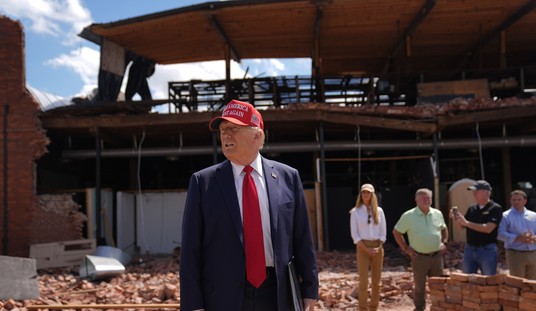There’s a lot of talk about where the election will be decided, but hardly anyone mentions a rather obvious choice – the heartland.
The “forgotten man” in rural America is trying to figure out which party remembers him, and the party that does could well end up with control of not only the White House but both houses of Congress.
Republicans can go a long way toward making themselves the party of the forgotten if they can put together farm legislation that brings food manufacturing jobs home to the US and supports struggling farmers. They’ll be singing from the same song sheet – both President Trump and J.D. Vance are on record as being strong supporters of strengthening and protecting our supply chain.
Vance said as much at the Republican National Convention. “We’re done sacrificing supply chains to unlimited global trade,” he said during his RNC speech on July 17. “Were going to stamp more and more products with that beautiful label: ‘Made in the U.S.A.’”
The Trump ticket needs to make the point that supporting domestic production and bolstering the competitiveness of American manufacturers is strong and vital farm policy and will lead to more products being labeled “Made in the U.S.A.”
Recommended
Foreign subsidized agriculture is a big problem for American farmers. In some cases, our tax dollars are used not to level the playing field but to actively give an advantage to foreign producers over Americans. In other cases our “allies” give their own farmers huge subsidies, which enables them to undercut our producers and cut American farmers out of American markets.
Take the sugar market for example. It is widely viewed as the world’s most distorted commodity market. American sugar producers are undermined by offshore concerns whose lobbying efforts have kept our farmers at a significant disadvantage for decades. Massive supports to sugar producers in Brazil, India and Thailand have led to rampant overproduction and predatory pricing on the world market.
India supports its sugar industry to the tune of $17.6 billion, according to 2022 figures. That’s vastly in excess of the World Trade Organization subsidy rules. Meanwhile, the US relies on loans to producers that are paid back, with interest, at no cost to taxpayers. There are no subsidy checks and no retaliation of any kind.
America’s sugarcane and sugar beet farmers wouldn’t be able to compete without that program, and they do so under the highest safety, labor and environmental standards in the world.
We’re at risk of becoming dependent on other countries for not only sugar but other critical food production because, as Trump and Vance have pointed out, current trade policies do not support American businesses. Trump and Vance should signal now that they are ready to take the same type of action on behalf of farmers as they did to protect the steel and aluminum markets.
As former President Trump and Sen. Vance have highlighted, we cannot become dependent on other countries for critical goods, from manufacturing to food production. Trade policies must be ready to punish those that subsidize production and dump on the world market, as well as countries that exceed quotas on imports, especially on essential food ingredients such as sugar and dairy products.
American farmers and workers feed our nation and ensure our domestic food and national security. With Republicans’ America First policies paving the way, it is critical for Congress to embody those ideals and pass a strong farm bill this year.
Strengthening American manufacturing and farming should be at the top of Congress’ agenda this fall. A competitive American farmer and strong supply chains will be the result of Congress passing a farm bill that puts American farmers first.
There is time to get this done before the election or after during a Lame Duck session of Congress. It is important that politicians talk about the issues facing farmers and make sure that they express positions that will attract votes this election.
Brian McNicoll is a freelance writer based in Alexandria, Virginia, a former senior writer for The Heritage Foundation, and former director of communications for the House Committee on Oversight and Government Reform


